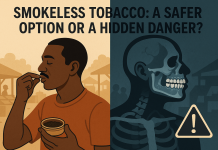Rheumatoid arthritis (RA) is one disease that affects the joints. It is caused by an abnormal immune reaction that attacks the lining of the joint and damages other parts of the body. It causes pain, swelling, and stiffness. This disease often occurs in more than one joint and can affect any joint in the body. Individuals with this disease may feel sick and tired and sometimes may have fevers to accompany the condition.
Causes of Rheumatoid Arthritis
Currently, doctors really don’t know the exact cause of rheumatoid arthritis (RA). However, more research is needed to provide more concrete information on the causes of RA, which are thought to be a combination of genes, environmental factors, and hormones.
Here are some surprising facts about what is known about RA (its history, triggers, and risk factors):
Smoking may trigger RA: This is the most well-understood environmental trigger and may play a role in one-third of severe cases of RA, including more than 50% of RA diagnoses among people who are genetically susceptible to the disease.
There is an increased risk in smokers who have a genetic variant known as shared epitope to develop RA.
RA risk varies with geography: Your risk of developing RA increases as you get farther from your equator. What’s more, living at a higher latitude earlier in life—at ages 15 and 30—seems to be riskier than at other times.
Lack of sunlight and other environmental factors are what poses this increased risk.
Lack of Vitamin D increases RA’s risks: Individuals with the lowest intake of vitamin D have the highest risk of developing RA. Similar other autoimmune diseases, such as multiple sclerosis, have been tied to vitamin D intake.
Traffic pollution may play a role: Pollution by means of particulates (microscopic particles that can be inhaled deep into the lungs) is also linked with inflammation.
RA is on the rise among women: It is not yet clear, but researchers speculate that it may be due to smoking of cigarettes (as women do not quit fast as men); lower-estrogen birth control pills (the hormone may









